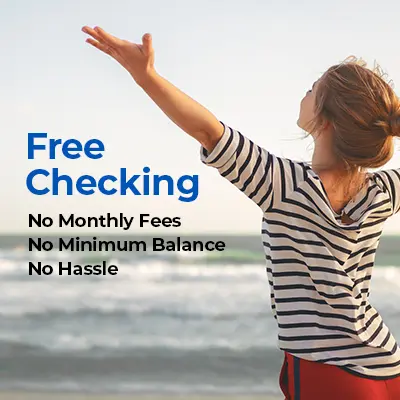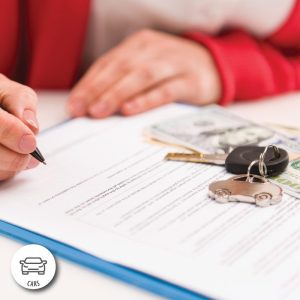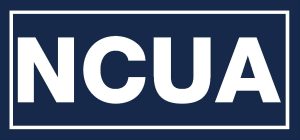Buying things with credit cards is quick and easy—just swipe your card and go. But for many, the ease of making purchases causes their balances to grow to unmanageable levels.
If you have one or more high-interest credit cards, a personal loan can be used to consolidate the debt. The following overview of the pros and cons of this strategy can help you decide whether or not it’s a good option for you.
Pros of Personal Loans for Credit Card Debt
Is a personal loan better than credit card debt? There are several important reasons why it could be. Everyone’s financial situation is unique, so it’s important to carefully consider the benefits before making a decision.
You May Get a Lower Interest Rate
A personal loan might have a lower interest rate than your credit cards do. Depending on the length of your repayment term, it may help you save money on interest.
Interest rates are rising, and the rate you’ll get on a personal loan will depend on several factors including Federal Reserve monetary policy, inflation, the bond market, and others. Your credit score also influences your interest rate. Those with higher credit scores may be rewarded with lower rates.
It May Help You Lower Your Monthly Payments
If your monthly credit card payments are beyond your budget, a personal loan can be used to lower them. This is done by structuring the loan so that you take longer to repay the debt. It’s important to keep in mind, however, that you’ll have to pay more in interest with longer loan terms.
You Can Lock in a Fixed Interest Rate
If you use a personal loan to pay off your credit card debt, the interest rate you’ll pay is locked in when the loan is created. You won’t have to worry about any future rate increases.
You’ll Have a Fixed Repayment Schedule
If you pay off your credit card debt with a personal loan, you’ll have a fixed repayment schedule. With a credit card, you have the option of making a minimum required payment each month. This may not allow you to pay down your debt if you owe a lot.
With a fixed repayment schedule, you’ll pay the same amount each month. This makes budgeting easy, and it also ensures that you’ll be making steady progress towards paying off your debt.
It Can Simplify Your Finances
If you have multiple credit cards, keeping up with the different due dates each month can be difficult. If you accidentally miss a payment, it could damage your credit score. By consolidating your credit card debt with a personal loan, you’ll only have one payment to keep up with each month.
It May Help You Get Out of Debt Faster
A problem with high-interest credit card debt is that it causes many to get trapped in cycles of debt that they have a hard time breaking free from. If your balance is high, making the minimum monthly payments can drag the repayment out seemingly forever. Late payment fees and high- interest rates can also cause the balance to grow instead of decrease.
With a personal loan, you’ll have a specific number of payments you’ll need to make. Each payment you make brings you one step closer to eliminating the debt.
It May Help Your Credit Score
The on-time monthly payments you make on a personal loan will be reported to the three credit bureaus (Experian, Equifax, TransUnion). As long as you make your payments before their due dates, they will help your credit score.
Another way that using a personal loan to pay off credit card debt can help your credit score is by decreasing the amount of available credit you have. This is one of several factors that influence your credit score, and it’s known as the credit utilization ratio.
The amount of personal loan debt you have, however, is not factored into your credit score. Transferring debt from your credit cards to a personal loan, therefore, will quickly lower the amount of available credit you are using, which will benefit your score.
Cons of Personal Loans for Credit Card Debt
Although there are several compelling benefits of using a personal loan to pay off credit card debt, there are also some important negatives to consider. Not everyone will be affected by these, however. It depends on how much self-discipline you have as well as other factors.
Missed Payments Could Make Things Worse
Just as making regular monthly payments on a personal loan can help improve your credit score, missed payments could harm your score. If this happens, it may take a few months or longer for your score to improve.
There May Be Fees
Depending on the lender, a personal loan may have fees, which could make debt consolidation more expensive than continuing to pay off your credit cards. Fees you may encounter include:
- Application fee
- Origination fee
- Late payment fee
- Prepayment penalty
- Payment protection insurance
Not all lenders charge fees for their personal loans. Be sure to ask about the fees before applying.
It May Encourage Increased Spending
A potential negative of paying off credit card debt with a personal loan is that you may be tempted to start buying things with your cards again. This could result in another high balance that you will have to deal with.
Consolidating Credit Card Debt with TEG Federal Credit Union
Paying off credit card debt with a personal loan is a great way to simplify your finances, lock in a fixed interest rate, and repay your debt on a fixed schedule. If you’re thinking about using this strategy, TEG Federal Credit Union (TEGFCU) offers personal loans that can be used for this purpose.
TEGFCU’s personal loans not only have competitive interest rates but also have no prepayment penalties and no fees. Loan terms of up to 60 months are available.
Click on the following link to learn more about TEGFCU’s personal loans to see how they can help you consolidate credit card debt.












